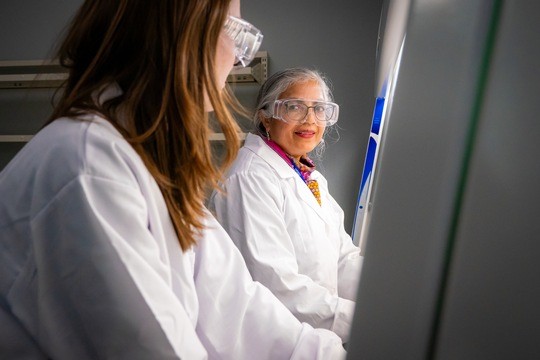

GEA opens US$20 million Janesville center to fast-track alternative protein scaleup
GEA has opened a US$20 million technology center in Janesville, Wisconsin, designed to help the alternative protein sector scale up from lab innovation to industrial production. The New Food Application and Technology Center (ATC), inaugurated on 17 July, is GEA’s second global hub for alternative proteins after launching a similar facility in Hildesheim, Germany, in 2023.
Focusing on technologies like precision fermentation, cell cultivation, and plant-based processing, the center is entirely powered by renewable energy. It marks a strategic expansion of GEA’s footprint in North America, where the company employs 1,600 people across 16 locations. The Janesville site also builds on the company’s long-standing presence in the city, which began in 2024 with its Separation & Flow Technologies facility.
“The food industry is at a crossroads. To feed future generations sustainably, we must turn vision into scalable reality,” said Stefan Klebert, CEO of GEA Group. “Our new center in Janesville is a key milestone on our shared journey – both for our customers and for us as a company. With this investment, we are helping our customers scale up the production of novel foods such as precision-fermented egg white and cultivated seafood.”
The new facility combines key GEA technologies under one roof, offering pilot-scale infrastructure that mirrors industrial conditions. Equipment includes bioreactors, thermal processing units, membrane filtration, centrifugation, aseptic filling, and spray drying systems. The aim is to support startups, established food companies, and academic institutions in optimizing their processes for food safety, cost-efficiency, and product quality.
Laboratory services further extend the center’s value proposition, enabling microbiological, analytical, and cell-based testing in-house. According to GEA, this integrated setup will allow customers to refine their formulations and manufacturing techniques in a controlled, scalable environment.
Located in a region known for both agriculture and manufacturing, the Janesville ATC is also expected to deliver local economic benefits. In addition to eight new scientific and engineering roles at the center itself, around 500 contractor and subcontractor jobs were supported during the build phase. The project enhances GEA’s operations in the area, where it already employs 74 people.
“This facility reflects how Janesville’s rich agricultural and industrial heritage can intersect with cutting-edge innovation,” said Jimsi Kuborn, Economic Development Director for the City of Janesville. “It not only honors our community’s roots, but also creates new opportunities for partnerships, workforce development, and sustainable growth. This project is a model for what’s possible – not just for Janesville, but for the entire Midwest and beyond.”
The USA remains the leading global market for alternative protein investment, and Wisconsin’s central location and legacy in food production make it well-positioned to support this rapidly growing sector. The center is intended not only as a testing ground but as a collaborative hub, connecting startups, corporate partners, academic researchers, and investors.
Jessica Almy, Interim CEO of the Good Food Institute in North America, said the Janesville ATC demonstrates the power of combining innovation and agriculture. “GEA’s Janesville center shows how innovation and agriculture can work hand in hand to create good jobs, strengthen food security, and help address climate challenges. It contributes to positioning the American Midwest at the forefront of food innovation.”
The center has also attracted international recognition. Professor Yaakov Nahmias, Director of the Grass Center for Bioengineering at The Hebrew University of Jerusalem, called GEA’s hubs “the crucible where visionary science becomes transformative industry, uniting biological innovation with cutting edge engineering to move towards a more sustainable future”.
In keeping with GEA’s wider sustainability goals, the Janesville ATC runs entirely on renewable energy, with a solar park on site generating surplus electricity. The investment aligns with the company’s long-term vision of helping its customers reduce CO2 emissions, minimize waste, and transition to more sustainable production systems.
(Main picture shows Dr Rebecca Furbeck [left] and Dr Saritha Chauhanare leading the customer tests at the new GEA ATC in Janesville)
If you have any questions or would like to get in touch with us, please email info@futureofproteinproduction.com

.png)






